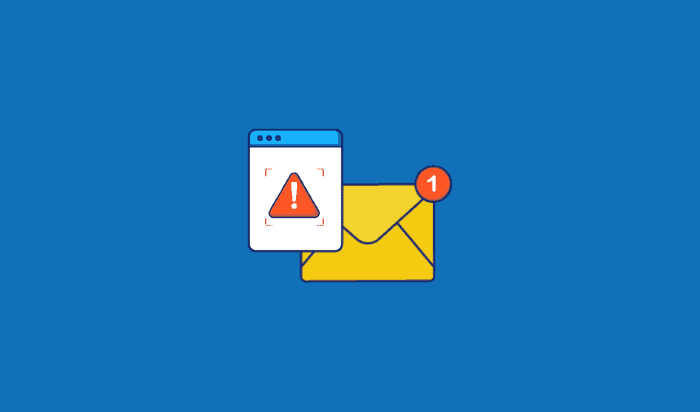In today’s digital world, consumers continue to receive a large volume of commercial emails. These include promotions, newsletters, alerts, and outright spam. Amid this clutter, email marketing remains a vital channel for businesses to engage audiences, generate leads, and drive revenue. But with this opportunity comes legal compliance requirements for email management.
If you’re not following the rules, your email marketing strategy could cost you more than lost clicks. It could result in fines, delivery failures, and brand damage. That’s where the CAN-SPAM Act comes in.
This guide explains what CAN-SPAM compliance means in 2025. It covers why it still matters, what has changed recently, and how to make sure your email marketing practices protect your brand and profits.
What Is the CAN-SPAM Act?
The CAN-SPAM Act of 2003 means Controlling the Assault of Non-Solicited Pornography And Marketing Act. This law regulates commercial email. It also gives people the right to stop getting unwanted messages.
Unlike privacy laws like Europe’s GDPR or Canada’s CASL, CAN-SPAM does not require prior consent. Instead, it uses an opt-out model, meaning you can legally send marketing emails until the recipient unsubscribes.
The law applies to all commercial emails, not just bulk email campaigns. Even a one-off message that promotes your product or service must meet compliance standards.

Get a FREE Compliance Audit from Our Experts
Solve all your compliance headaches. Talk to our compliance consultants today. No obligations. We’re just here to help.
Key Requirements of CAN-SPAM
To stay compliant, marketers must:
- Use honest email subject lines and headers
- Disclose that the message is an advertisement, if applicable
- Include a valid postal address
- Provide a clear, working email unsubscribe mechanism
- Honor opt-out requests within 10 business days
- Avoid email harvesting, deceptive routing, or misleading practices
Noncompliance—even accidental—can lead to major financial and reputational consequences.
Why CAN-SPAM Compliance Should Be a Priority
1. Hefty Financial Penalties
Noncompliance with CAN-SPAM is not a slap on the wrist. Violators may face fines of up to $53,088 per email. That means a single campaign sent to 1,000 non-compliant addresses could potentially trigger over $53 million in penalties.
While fines of this magnitude are rare, the law gives the Federal Trade Commission (FTC) broad enforcement power—and smaller penalties still add. In some cases, state attorneys general or Internet Service Providers (ISPs) can act as well.
2. Deliverability Risks: ISP Blocking & Blacklisting
ISPs like Gmail, Yahoo, and Outlook aggressively filter out spam and malicious emails. Even if you avoid legal action, non-compliant practices can lead to:
- Blacklist placement, reducing email deliverability
- Lower inbox rates and higher spam folder placement
- Domain or IP reputation damage
Once you’re on a blacklist, getting off can be expensive and time-consuming—and you may lose access to important customers or leads in the meantime.
3. New Sender Requirements from Google & Yahoo (2024 Update)
In February 2024, Google and Yahoo rolled out new bulk sender requirements, which other email providers, like Outlook, are now following:
- All senders must implement SPF, DKIM, and DMARC authentication.
- All bulk emails must include easy, one-click unsubscribe links, which should be included in both the body and header of the email.
- Complaint rates must remain below 0.3%, or delivery may be blocked or throttled.
While these rules technically apply to bulk senders, they’re becoming best practices for all senders. Even smaller businesses should comply to maintain deliverability and brand credibility.

Achieve 100% Compliance in 60 Days or Less
Work with email compliance experts and get more out of your outbound marketing efforts.
What’s New in 2025?
As the digital marketing and privacy landscape continues to evolve, several developments in 2025 are reshaping how businesses must approach CAN-SPAM compliance:
1. Increased FTC Enforcement Using AI Tools
The FTC has begun leveraging artificial intelligence and machine learning tools to identify potential CAN-SPAM violations at scale. This includes analyzing subject lines, sender domains, and complaint patterns. Businesses relying on “gray area” tactics are more likely than ever to get flagged.
2. Growing Legal Scrutiny of Affiliate and Partner Networks
Marketers using third-party affiliates or agencies to promote their products are seeing increased scrutiny. In 2025, enforcement agencies are cracking down on companies that claim plausible deniability when non-compliant emails are sent on their behalf. Even if a partner is responsible for the infraction, your brand can still be held liable.
3. Closer Alignment with State Privacy Laws
California’s CPRA, Virginia’s VCDPA, and other state-level privacy laws have begun to overlap with federal email compliance. While CAN-SPAM hasn’t been amended, courts and regulators are increasingly interpreting email violations through a broader privacy lens. Ignoring opt-out requests or failing to honor data deletion requests could now expose your company to multi-layered enforcement actions.
4. Higher Consumer Expectations
Consumers in 2025 expect a fast, seamless unsubscribe experience. They’re also more privacy-aware, with increasing use of tools like Apple’s Mail Privacy Protection. Businesses that fail to honor unsubscribe requests quickly or obscure them in their designs may see rising complaint rates, even if technically compliant.
5. Platform-Level Accountability
Email service providers (ESPs) are now building real-time compliance dashboards and flagging clients who send emails that trigger excessive complaints or bounce rates. If your ESP suspends or throttles your account, recovery can take weeks—and affect every campaign.
Together, these developments make clear that CAN-SPAM compliance is no longer just about “checking the box.” In 2025, it requires proactive monitoring, transparent practices, and strategic alignment with overlapping regulations.
Overlapping Regulations (GDPR, CASL, CCPA, CPRA)
CAN-SPAM is just one piece of the email compliance puzzle. U.S.-based senders who engage international customers—or even residents of California—must navigate other laws, including:
- GDPR (EU) – Requires clear opt-in consent and data processing disclosures
- CASL (Canada) – Consent-based law with steep penalties for unsolicited emails
- CCPA/CPRA (California) – Expands consumer rights and limits data usage
Failing to align your email practices with these laws—even if you’re CAN-SPAM compliant—could still lead to legal trouble.
CAN-SPAM Compliance Checklist: 12 Rules to Follow

Here’s a breakdown of the core requirements—and how to meet them.
- Be Honest in Subject Lines
- Clearly Identify the Sender
- Disclose That It’s a Commercial Email (If Applicable)
- Include a Physical Postal Address
- Provide a Visible, Easy-to-Use Unsubscribe Link
- Honor Unsubscribes Within 10 Days
- Don’t Use Harvested or Purchased Lists
- Vet Third-Party Vendors
- Maintain a Suppression List
- Monitor Complaint Rates
- Conduct Regular Audits
- Document Consent Where Possible
The Role of Email Authentication
Authentication protocols help mailbox providers verify that your emails are legitimate. Without them, your messages may be rejected or marked as spam—even if they’re fully compliant.
Implement These 3 Protocols:
- SPF – Authorizes which IPs can send email for your domain
- DKIM – Digitally signs each message to prevent tampering
- DMARC – Tells ISPs how to handle failed SPF/DKIM checks (quarantine or reject)
Together, these build sender reputation, enhance deliverability, and are now required by Gmail and Yahoo for large senders.
How to Implement SPF, DKIM, and DMARC Protocols
SPF (Sender Policy Framework), DKIM (DomainKeys Identified Mail), and DMARC (Domain-based Message Authentication, Reporting, and Conformance) are essential email authentication protocols that help protect your brand and improve email deliverability. Here’s how to implement them in three straightforward steps:
1. SPF – Authorize Your Email Senders
SPF lets receiving email servers know which services are allowed to send email on your behalf.
To implement SPF:
- Make a list of all email platforms and services your company uses to send email (such as Google Workspace, Microsoft 365, Mailchimp, or HubSpot).
- Work with your IT team or domain host to update your domain’s DNS settings to include those authorized senders.
- This step ensures that your emails pass basic legitimacy checks.
2. DKIM – Add a Digital Signature to Your Emails
DKIM adds a digital signature to each email you send, helping recipients verify that the message wasn’t altered after it left your system.
To implement DKIM:
- Your email provider will generate a DKIM key for you.
- Your IT team or domain administrator will add this key to your DNS records.
- Once set up, DKIM automatically works in the background to validate your messages.
3. DMARC – Set Rules and Get Reports
DMARC builds on SPF and DKIM to tell email providers what to do if a message fails authentication—such as sending it to spam or rejecting it altogether. It also enables you to receive reports about unauthorized sending attempts.
To implement DMARC:
- Decide how strict you want to be initially—start with a relaxed setting to monitor how things are working.
- Ask your IT provider to add a DMARC record to your DNS settings.
- Review the email reports DMARC generates to understand if any spoofing or authentication issues are occurring.
Pro tip: Most email platforms offer guides to walk you through this process, and your IT or web hosting provider can typically help you manage the necessary DNS updates.
By putting these protocols in place, you strengthen your sender reputation, reduce the risk of spoofing or phishing, and align with new requirements from Google, Yahoo, and other major email platforms.
Common CAN-SPAM Mistakes to Avoid
Even seasoned marketers can fall into traps. Here are some frequent missteps:
- ❌ Misleading subject lines
- ❌ Unsubscribe link hidden in a graphic or hard to find
- ❌ Sending to unsubscribed contacts
- ❌ Relying on purchased email lists
- ❌ Using third parties that aren’t compliant
- ❌ Failing to audit templates or test unsubscribe flows
Each of these can lead to consumer complaints, blacklisting, or FTC investigations.
What Happens if You Violate the CAN-SPAM Act?
Consequences can include:
- Fines of up to $53,088 per email
- Lawsuits from consumers or competitors
- Blacklist placement by ISPs
- Forced changes to your marketing systems
While major penalties are more common for bad actors, even small companies have been fined for poor unsubscribe practices, deceptive headers, or outdated lists.
Frequently Asked Questions (FAQ)
Q: Does the CAN-SPAM Act apply to B2B emails?
Yes. Any message promoting a product or service—even to another business—is subject to CAN-SPAM.
Q: Do I need permission to email someone?
No, not under CAN-SPAM. But you must provide a way to opt out and comply with other requirements.
Q: Can I email someone again after they unsubscribe?
No. Once someone opts out, you may not contact them again unless they opt back in.
Final Thoughts: Turn Compliance Into an Advantage
Email compliance is about more than avoiding fines—it’s about building a marketing program that’s ethical, respected, and high-performing.
With inboxes becoming more intelligent and privacy laws evolving rapidly, a culture of transparency and respect is key. Marketers who embrace compliance can differentiate themselves by:
- Earning trust
- Protecting deliverability
- Improving ROI
- Future-proofing their strategies
Need Help? UnsubCentral Can Guide You
At UnsubCentral, we specialize in email compliance and opt-out management. Our tools and services help you:
- Centralize suppression lists
- Sync opt-outs across vendors and platforms
- Monitor complaint rates and email performance
- Stay compliant with CAN-SPAM, GDPR, CASL, and more
Want a free compliance audit or product demo? Contact us today and stay one step ahead of risk


